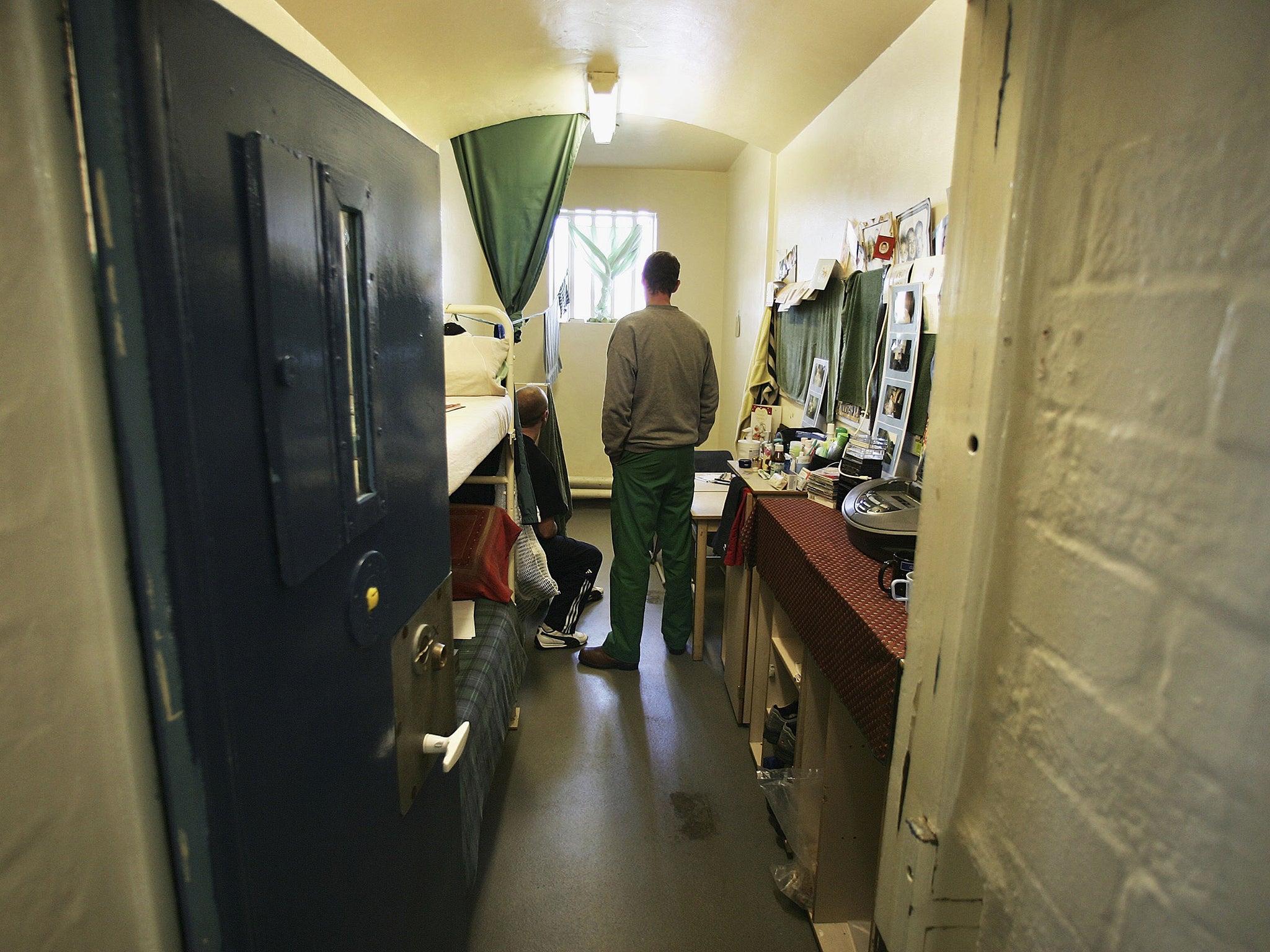Extra prison time for bad behaviour costs taxpayers £15m
MoJ figures show that prison staff are increasingly turning to disciplinary proceedings to maintain order

Prisoners across England and Wales were handed almost 160,000 days of extra jail time last year for breaking rules while serving their sentences, exacerbating overcrowding and costing taxpayers up to £15 million, according to new research.
Ministry of Justice figures show that prison staff are increasingly turning to disciplinary proceedings to maintain order, leading to inmates being held behind bars for longer and putting further pressure on a system which is already “creaking at the seams” due to overcrowding, the report by the Howard League for Penal Reform says.
The system of “adjudications” sees inmates tried for petty offences committed inside jails such as disobedience, disrespect or property theft. The hearings, which cost between £400,000 and £500,000 a year, can result in a prisoner being punished with solitary confinement or being given extra days of imprisonment.
The number of adjudications where extra days behind bars could be imposed has increased by 47 per cent in the past five years, from 14,741 hearings in 2010/11 to 21,629 in 2014/15. The number of extra days imposed on children has almost doubled in the last two years even though the number of children in prison has almost halved, the report says.

The Howard League said staff shortages, increasing violence and a “general deterioration in safety in prisons” lay behind the rise. “As frustrations increase among people in prison, due to overcrowding and staff cuts, it is not surprising that prison staff are resorting to the disciplinary system with increasing frequency,” the report says.
Most adjudications are tried by a prison governor, with inmates being denied legal representation except in some circumstances. Cases that are sufficiently serious to attract the risk of additional days behind bars may be referred to a visiting district judge.
If additional days are imposed as a punishment, they extend a prisoner’s date of release from jail but do not increase their sentence – meaning that the most challenging prisoners can be set free without any period on licence in the community. Up to 42 additional days can be imposed at a single hearing.
According to MoJ figures almost 160,000 extra days – equivalent to 438 years – of imprisonment were imposed last year as a result of adjudications, costing taxpayers an estimated £15m in further detention costs, the report says. The young offender institution HMP Aylesbury in Buckinghamshire imposed 9,428 additional days last year, more than any other prison in England and Wales.
The Howard League said many of the acts being punished with additional days of imprisonment would not result in a prison sentence if they had been committed outside the prison walls. The charity is calling on the MoJ to curtail the punishment “in all but the most serious cases”.
“The system of adjudications has become a monster, imposing fearsome punishments when people misbehave often as a result of the dreadful conditions they are subjected to,” said Frances Crook, chief executive of the Howard League. “This bureaucratic, costly and time-consuming system of punishments then further feeds pressure on the prisons, creating a vicious cycle of troubled prisons and troubling prisoners.”
Responding to the report, a Prison Service spokesperson said it was “right” that offenders who break prison rules were properly punished. “Where indiscipline amounts to a criminal offence, prisoners should expect to be investigated by the police and face more serious sanctions.
“The Justice Secretary has set out a plan for reform in our prisons, making them places of ambition and endeavour. These crucial reforms will help curb indiscipline and cut reoffending, leading to less crime and safer streets,” they added.
